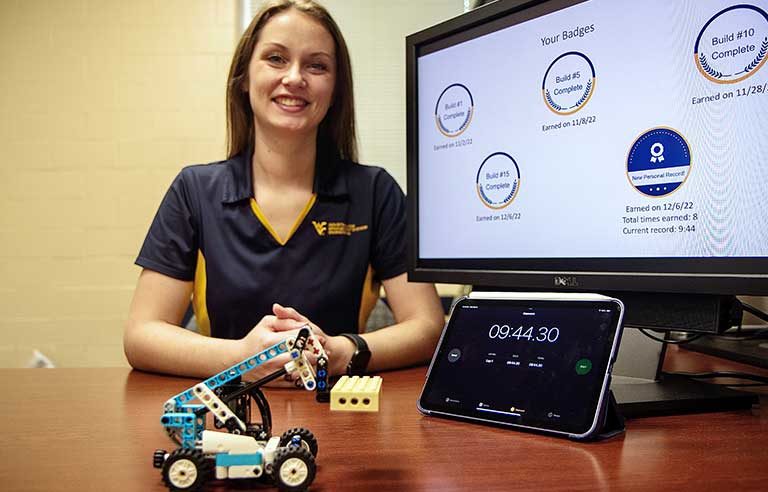Gamified manufacturing tasks may be too stressful for some workers: study

Gamification tactics such as progress bars and badges significantly boost participant productivity, WVU researchers found. (WVU Photo/Nathaniel Godwin)
Morgantown, WV — Turning mundane manufacturing tasks into games may boost worker engagement, motivation and productivity – but it also may stress out some people, results of a recent study show.
Researchers at West Virginia University divided 20 participants into a “gamified” group and a control group. Both groups assembled a model of a cherry picker, also known as reach forklift, during five different sessions (15 total assemblies).
For the participants in the gamified group, their productivity was measured and rewarded via game-like elements such as progress bars and badges. By the time they got to their final build, they were significantly faster at completing the task. However, the gamification also “increased frustration, effort, time pressure, and mental and physical demands,” study author Makenzie Dolly, an assistant professor at WVU, said in a press release.
Anyone designing a gamification application must consider workers’ personalities or patience levels with more difficult tasks, Dolly said.
“Every individual has their own threshold for what level of challenge and stress is helpful, and pushing employees past that point can lead to high turnover and sick leave,” she added. “When it comes to gamification, workers need to be in that sweet spot between boredom and overwhelm.”
The study was published online in the journal Robotics and Computer-Integrated Manufacturing.
Post a comment to this article
Safety+Health welcomes comments that promote respectful dialogue. Please stay on topic. Comments that contain personal attacks, profanity or abusive language – or those aggressively promoting products or services – will be removed. We reserve the right to determine which comments violate our comment policy. (Anonymous comments are welcome; merely skip the “name” field in the comment box. An email address is required but will not be included with your comment.)

